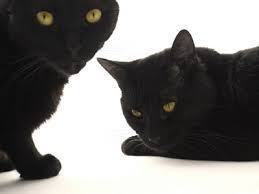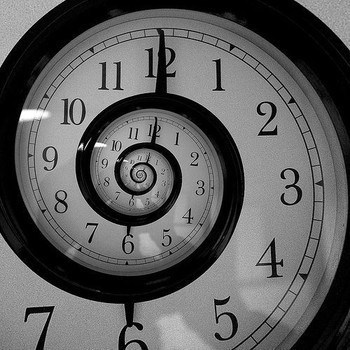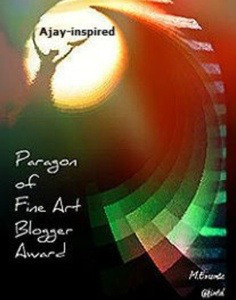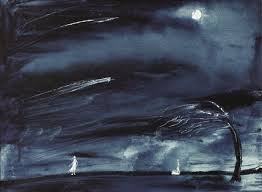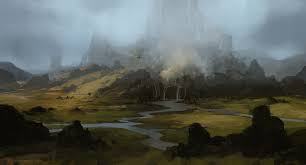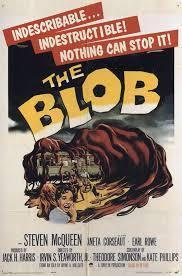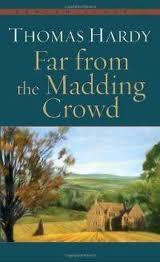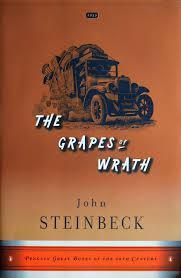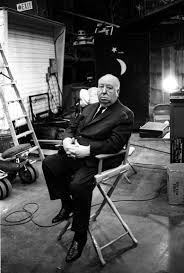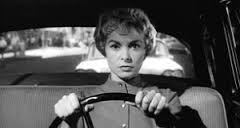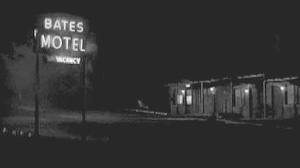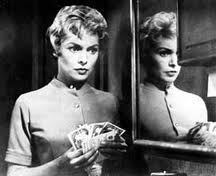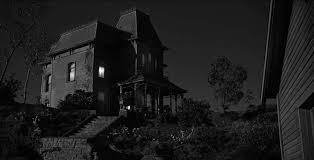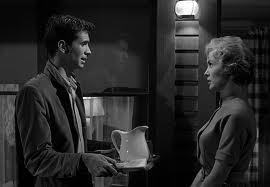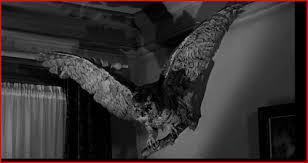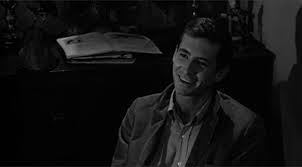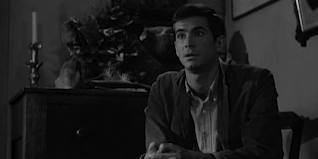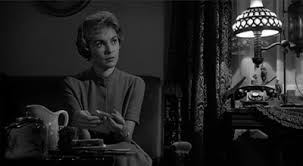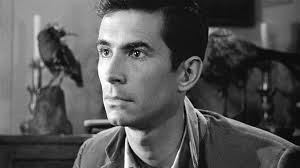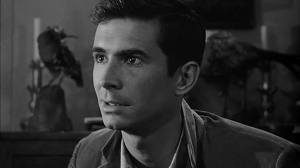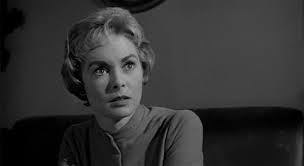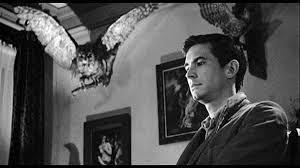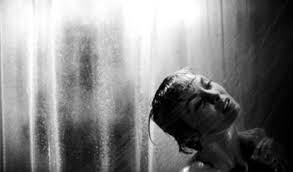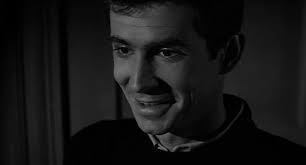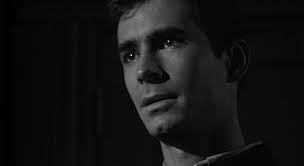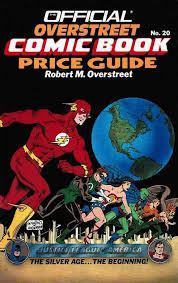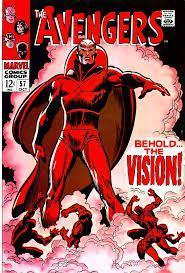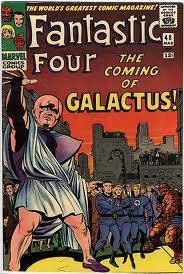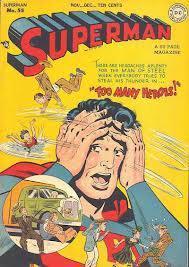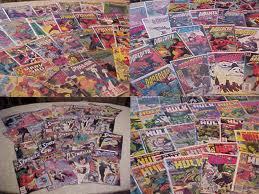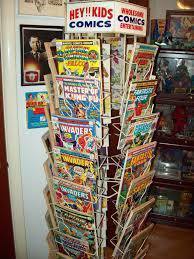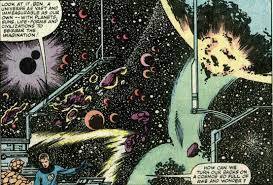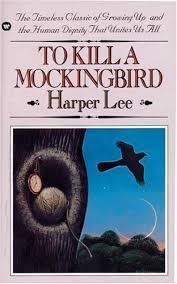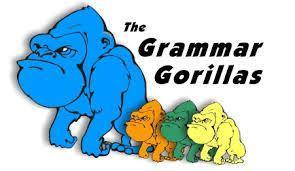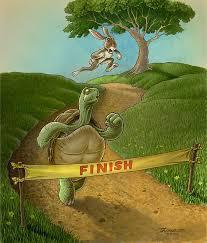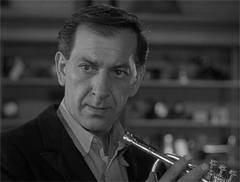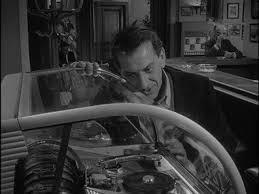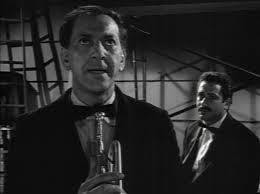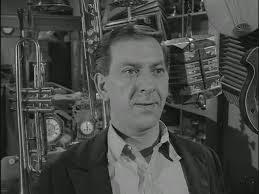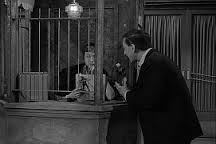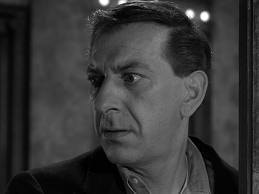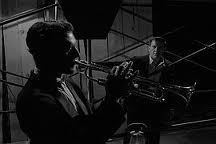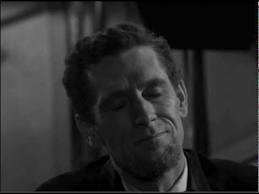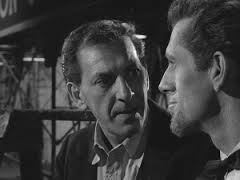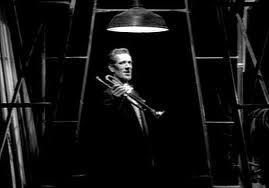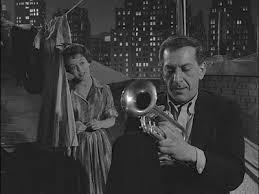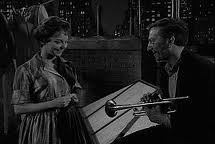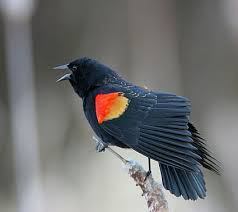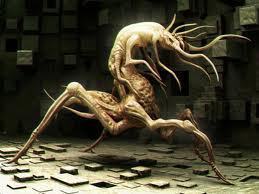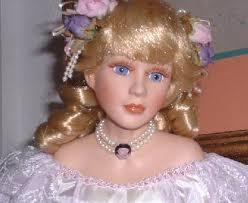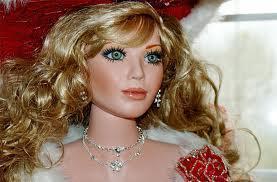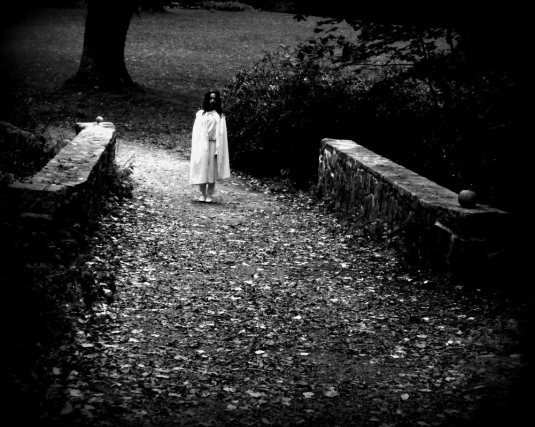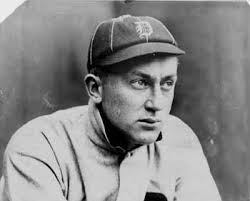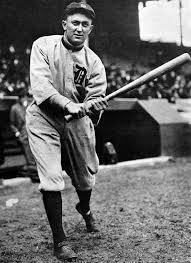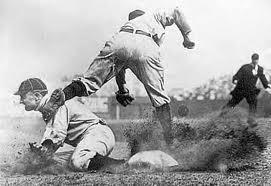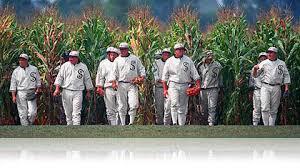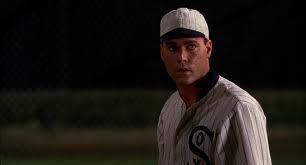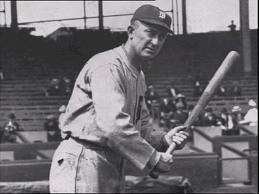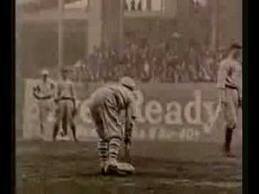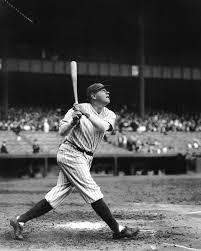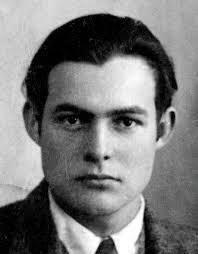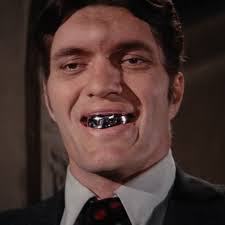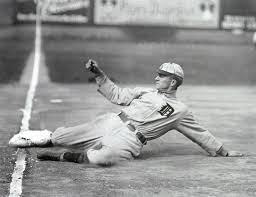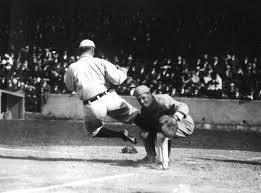Michael S. Fedison's Blog, page 18
May 9, 2014
Worlds without End
Have you ever been somewhere, just some random place on a normal, nondescript day, when, all of a sudden, it hits you? You blink, once, twice, three times, trying to reorient your senses. You look more closely at your surroundings, inspecting every detail, hoping to prove–or disprove–your suspicions. But no matter what you do, or where you look, or how you try to rationalize, the conclusion is inescapable.
You know you’ve lived this moment before.
Deja vu is a phenomenon that science has never been able to explain with certainty. It has tried, of course. Many theories exist. Perhaps memory itself is the root of the feeling. Maybe, in moments of deja vu, we are remembering something similar, something partial–unable to make the necessary links to complete the picture. Maybe there is a rational, scientific, perfectly logical explanation to all cases of deja vu.
Or maybe the answers are not so cut-and-dried. Certainly, to anyone who has felt a strong sense of “having been there before” when they, in actuality, never have, an explanation of faulty memory or a perception that somehow has gone momentarily haywire might not satisfy.
I know it has never satisfied me. I have experienced deja vu several times, but there was one episode in particular that stands out from the rest.
I was in a store I had never visited. I knew this to be true because I had never even been to the town in which this store was located. It was an old-fashioned country store, in the hills of southern Vermont, the kind of place you might expect to see in a Norman Rockwell painting, with hardwood floors, exposed ceiling beams, and an antique cash register, behind which stood a bespectacled woman with snow-white hair and a welcoming smile.
Immediately, upon entering, the feeling hit me, an almost out-of-body sensation. In my mind’s eye, I saw myself–months ago, years ago?–walking down the aisles, browsing the merchandise, the dull thud of my shoes echoing against the sturdy wooden planks on the floor. And when the woman behind the register waved, said, “Nice day, thanks for comin’ in,” I knew, knew, she had said those exact words to me before.
I took a deep breath, my head swirling. I nearly walked out, then and there. It was too strange, too uncanny. I paused, thought . . . was I mistaken? After all, I had been to several country stores throughout Vermont. Maybe I’d forgotten. Maybe I had visited this town, this store. But no. I was sure of it. This was the first time.
I walked down one of the aisles, knowing what I would see before I saw it. I turned into the next aisle, still feeling as if I were somehow hovering above, unseen, a film projector in hand, recording the past, yet playing it simultaneously, the very fabric of time wrapping in and around itself, with me stranded in its spinning, whirling center. How could this be? How could my memory of an event that had never transpired be so specific, so actual?
I purchased a small item, checked out. When the clerk rang me up, I knew what she was going to say. “Come back and see us again soon.” I nodded, thanked her, and quickly left. I have never been back.
Or, perhaps, without knowing it, I have. . . .
********************
The Eye-Dancers, among other things, explores the concept of parallel worlds, of a layered reality, where universes lie, side by side, without any knowledge of each other. And in these parallel worlds, we have other selves, other versions who go about their days and their lives, just as we do, running errands, picking up the mail, going to the dentist on rainy November mornings–most likely convinced that their universe is unique, the only one in all creation.
In The Eye-Dancers, after journeying through the void and while exploring the variant town of Colbyville, Mitchell Brant, Joe Marma, Ryan Swinton, and Marc Kuslanski are confronted with these issues head-on. And while discussing their plight, Marc offers this explanation, from chapter 12 . . .
“Everything in existence fits together. . . . The smallest subatomic particle, the worst hurricane, the largest whale, the layers upon layers of reality. All of it. And what quantum mechanics tells us is–there are infinitely multiple versions of each of us. Infinitely multiple versions of our earth. You couldn’t even begin to count them all.”
Such an idea is difficult for the other boys to grasp, and Marc does admit: “Infinity will blow your mind if you let it.” But, given their situation, it is something they think about often.
In chapter 13, in a quiet moment, Joe Marma ponders it all. The text reads:
“He thought about what Kuslanski had said earlier–worlds upon worlds, onward through infinity. Each of us scattered throughout the various realities like fallen leaves from the same tree.”
Indeed, might this be the real reason behind deja vu? Could it be when we feel a strong sensation of having done something we haven’t done, seen something we haven’t seen . . . could it be that some small, hidden aspect of our subconscious mind is remembering an event one of our alternate selves experienced?
Marc Kuslanski considers just this in chapter 18 . . .
“It made him wonder. What we call the subconscious–how much of it is derived from other worlds, other selves, spread out through time and space? How much of who we are, what we know, is but a small piece, interlocking with an ever-expanding, layered puzzle of an infinity of existences?”
Far-fetched? Outlandish? Perhaps. But impossible? Nothing is impossible. So, you see, maybe I had in fact visited that Rockwell-esque country store before, after all. And maybe I have again since . . .
. . . in a world far, far away, beyond the sign posts of our reality. And yet, so close, close enough to almost remember, to almost touch and see.
Close enough that, if we listen, really listen, we can occasionally hear its echoes speaking to us, like soft whispers in the dark.
Thanks so much for reading!
–Mike


May 2, 2014
An Awards Extravaganza, and . . . Breaking the Rules!
It’s always a great feeling when The Eye-Dancers receives a nomination for a blogging award. Blogging awards offer us a wonderful way of spreading the goodwill that makes the WordPress community the special place it is. And it is again with much appreciation and gratitude that I accept the nominations from several blogging friends.
Thanks to Anne at Tales Along the Way; Jennifer K. Marsh; and Janice at jemsbooks for nominating The Eye-Dancers for The Shauny Award for Blogging Excellence, The Sunshine Award, and The Inner Peace Award, respectively. I was fortunate enough to have been nominated for these awards previously, but I wanted to thank all three of these wonderful bloggers! If you haven’t had the pleasure of visiting their sites, I strongly urge you to do so!
*****************
Within the past few weeks, The Eye-Dancers has been nominated for three new awards. . . .
Thanks to Janice at jemsbooks for The Butterfly Light Award. Janice has been a steadfast and ongoing supporter of The Eye-Dancers, and I can’t thank her enough. I hope you’ll check out her great blog, and download her wonderful books!
Conditions For Accepting The Award
Here are the conditions for accepting the award :
1. You must write an acceptance post, making sure you link back to the blogger who awarded you and thank them. You MAY NOT lump this award in with a batch of other awards. [Oops! This is the first rule I am breaking in this post!]
2. You must individually name and re-award to a minimum of 1 and a maximum of 9999999 bloggers. You must let them know either personally with a comment on their blog OR a pingback (I’d suggest their about page) [Hmm, this is the second rule I am breaking . . .]
3. You must link back to Belinda’s blog either to http://idiotwriting.wordpress.com/2014/03/13/i-love-charismatic-geeks/ OR http://idiotwriting.wordpress.com/about/
4. You must write a short paragraph (yes only one paragraph – damn this is easy) – Entitled either “How I’m Spreading Light” OR “How I’m A Positive Influence”
5. Display Belinda’s lovely “Butterfly Light Award” badge on your blog.
“How I’m A Positive Influence”
Honestly, this one was tough! It feels a little egotistical to use such a heading. But one thing I hope The Eye-Dancers site has done, and continues to do, is to encourage everyone to unleash the creative powers within, to let them out with a flourish. Tell your story. Sing your song. Paint your picture. Do what you love, and then share it with the world. Only you can tell your story.
As for the blogs I nominate, please keep reading!
*****************
Thank you to Jennifer K. Marsh for The Imagine Award. Jennifer has supported The Eye-Dancers for the long haul, and I very much appreciate it! She has a wonderful blog (more on this in a minute), and is a very talented author.
The purpose of The Imagine Award is to highlight blogs which make special use of creativity and passion.
According to the rules, I must nominate 3-5 blogs for the award [more on this later--more rule-breaking, I'm afraid!] as well as state 3-5 reasons why I like Jennifer’s blog . . .
Jennifer’s site is great. There are many reasons for this. Here are five . . .
1. She has a deep appreciation for nature and the environment. Her posts reflect this, her words portray this. As a fellow nature lover myself, this is something I genuinely appreciate and admire about Jennifer and her blog.
2. Jennifer is a highly creative and imaginative person, and her posts have the ability to lift me up on wings, enabling me to fly high overhead, and enjoy the view. She is a talented wordsmith and a dreamer of dreams.
3. Jennifer has a wonderful sense of humor. Regardless of what type of post she is writing, her humor shines through.
4. She is very honest, open, and holds nothing back. Jennifer will post on subjects that mean a great deal to her, and is not afraid of sharing her heart with her readers. This, combined with her fantastic sense of humor, truly makes her blog a very personal and heartfelt reading experience.
5. Jennifer exhibits a tremendous variety in her posts. From one post to the next, she keeps things fresh and unpredictable. And when it comes to creative writing, unpredictable is good!
So for these reasons and many more, I hope you will visit Jennifer’s blog!
******************
And thanks so much to Alisha Williams at Poemotherapi Shoppe for The Paragon of Fine Art Blogger Award nomination! Alisha’s blog is a creative cornucopia of beautiful words and images. She is a very talented and accomplished poet. I am sure you will enjoy visiting her site as much as I do!
The Paragon of Fine Art Blogger Award celebrates bloggers who love art.
Rules for the acceptance of this award:
Along with the acceptance of the PFAB Award please post anything that would express your love for art, it may be in a form of a painting, a photograph, an illustration, a poem or essay, anything done for the love of art.
Choose 6 bloggers who should merit the said award. [I think you know where I'm going with this by now!]
Notify the deserving bloggers of the award, let them know the rules.
Acknowledge the presenter of this award by linking back.
Pin the Ajay-inspired badge on your blog.
For this award, I wanted to write a few words on why art is important to me and, indeed, to the world.
It’s an age-old debate. Does art reflect life? Or does life reflect art? To me, both aspects are true.
Art certainly reflects life. Any artist–writer, painter, singer, etc.–brings their own experiences, their triumphs, failures, loves, and losses into their art, into the things they create. This much is irrefutable.
But the reverse is also true, and it provides the more important aspect of this life/art, art/life duality. Ray Bradbury was once interrogated by the police for walking around the streets of his neighborhood at night. His crime? Simply walking, thinking, being. Out of this experience, he created “The Pedestrian,” a futuristic little tale that depicts a world where everyone remains indoors, hidden away from the world, existing within the confines of their walls, glued to their televisions and trapped in a virtual, artificial reality. This is art. Taking a personal experience and broadening it, crafting an imaginary tale that on one hand transports us to a faraway world, while on the other forces us to look at our own society, our own laws and mores, our own selves.
And by doing this, art shapes our lives. It causes us to think about things we may not otherwise have considered, it causes us to see the old with a new pair of eyes, with a new point of view.
**************
It’s always very difficult nominating just a few bloggers for each award. There are so many wonderful blogs out there, selecting only five or ten or fifteen is virtually impossible. And the truth is, it is all of you, everyone in the WordPress community, that makes The Eye-Dancers blog so much fun for me.
And so, I would like to share each award mentioned here–The Shauny Award, The Sunshine Award, The Inner Peace Award, The Butterfly Light Award, The Imagine Award, and The Paragon of Fine Arts Blogging Award–with each and every follower of The Eye-Dancers site. I hope you’ll choose to accept at least one of these awards, and, perhaps, all of them!
Thanks so much for all of your ongoing support! It means the world to me. And thanks so much, as always, for reading!
–Mike


April 25, 2014
The (Name’s) the Thing (Or, What Should I Call It?)
Has it ever happened to you? An idea hits you, seemingly out of the blue, as the best ideas always do–unasked for, unplanned.
You feel excited, energized, eager to get started. You don’t have your story all figured out yet, but you don’t care. Who needs an outline? You have a situation. You have a set of characters. Most important of all, you have a need to get this boiling, rushing volcanic river of creativity down on paper (or on the computer screen, as the case may be). You feel you’ll explode if you keep it locked away inside of you.
You have a story to tell. And you want to share it with the world.
There are few things more exhilarating than this in the life of a writer. One moment, there is nothing, but then, in the next . . .
Maybe you’re between projects. Maybe you’ve been in a slump. Or maybe you’ve been on a roll, your creative powers at an all-time high. It doesn’t matter either way, because when this new idea strikes, you feel as though you could spread your arms, catch an updraft, and soar for miles.
You begin the story, the keyboard humming along, the words pouring out of you so fast, your fingers are having trouble keeping up. But at some point, perhaps a paragraph in, perhaps thousands of words in, it hits you.
You don’t have a title. You are writing a story “Untitled.”
What to do?
********************
When I began writing The Eye-Dancers, it wasn’t called The Eye-Dancers. It wasn’t called anything. It seemed as if I had the necessary ingredients in place to come up with an attention-grabbing title. I had ghost girls and nightmares and endless blue voids, and worlds upon worlds, without end. Why was the title so difficult to get right?
I tried a few. Pathways through Infinity. Ugh. Journey without End. Double ugh! Not to mention misleading. There is, in fact, an end. Through Time and Space. Putrid! It sounded like a B movie from the 1950s. So I did the only thing I could. I forgot about what to call the novel, and continued to write it.
It wasn’t really a surprise that a title didn’t stick initially. They rarely do for me. Even with short stories, I often do not think of a title until after the story is written. But with The Eye-Dancers, it grated on me. A short story, after all, can be completed in a day or two. It doesn’t compare with the months-long marathon of writing a novel. And as I reached 30,000 words in my ever-growing manuscript, and then 40,000, and then 50,000 . . . I started to become concerned. What if I never thought of a title? How could I publish a book with no name?
I tried force-feeding a few more would-be titles, but these were even worse than the first batch. (Hard to believe, but true.) So I plugged away and kept writing, and then . . . when I came to the final segment of the novel, Mitchell Brant, that weaver of tales and stories himself, helped me to solve the puzzle.
Earlier in the novel, when the boys are first transported through the void, via the swirling, hypnotic blue eyes of the “ghost girl,” Mitchell has the sense that they are dancing, or, more specifically, “eye-dancing.” At the time, I never really considered that the makings of a book title were contained in those words. (When you are tone deaf with titles, as I sometimes am, these things can take time!)
Thankfully, Mitchell bailed me out. In the epilogue, Mitchell again uses the term “eye-dancing” to describe the dimension-busting adventure he and his friends have experienced. This time, the lightbulb went off! I had it.
The Eye-Dancers.
It was perfect. It fit the story. It had a catchy, mysterious sound to it–it was evocative . . . I liked it.
It just took a long time coming.
**********************
The more I think about it, the more I believe a title should come late in the game.
Writing a novel is like wandering through a maze, with lush, leafy ivy growing from the walls, ten feet high. Just when you think you know the direction the story will travel, it does a sudden U-turn, then fakes right and goes left, taking you, the author, along for the wild, unpredictable ride. This is why I don’t use chapter-by-chapter outlines. I know the flux and flow of the narrative will change as I dive in. The original conception will become a relic, a barnacle-covered shipwreck lying 3,000 fathoms beneath the sea.
Why, then, worry about a title at the beginning? If you have a title, and you’re sure it will work, great. That’s one less thing to concern yourself with. But if you’re not sure, or completely in the dark, rest assured that your characters, your story, will ultimately provide the answer.
Some of my favorite novel titles include: To Kill a Mockingbird, The Sound and the Fury, Far from the Madding Crowd, and The Grapes of Wrath.
Each one creates an instant mood and paints a word-picture and metaphor all its own. Concerning the first three, I am unaware of how or at what point during the writing process they came to be (though I would be surprised if they materialized early on). As for John Steinbeck, he struggled mightily to come up with a suitable title for his book, and only arrived at The Grapes of Wrath after his wife suggested it.
***********************
I am currently working on a sequel to The Eye-Dancers. What will I call it? At the moment, I haven’t a clue. I’ll leave that to the roller-coaster ride of the story itself, with its ebbs and flows and sudden, unexpected turnabouts. And its characters.
They will provide a title for me at some point.
I’m counting on it.
Thanks so much for reading!
–Mike


April 18, 2014
No Terror in the Bang
What makes something suspenseful? What are the necessary ingredients that, when mixed together in just the right amounts, at just the right moments, cause us to feel the tension at a visceral level, and make us want to read through the pages at warp speed, desperate to see how it all turns out?
When asking such a question, who better to turn to than the Master of Suspense himself?
“There is no terror in the bang,”Alfred Hitchcock once said, “only in the anticipation of it.” Indeed. In his films, the acclaimed director is not seeking quick, cheap thrills. He builds tension, slowly, incrementally, a nip here, a prod there . . . we as the audience are left knowing something will happen. But when? Where? In what way? The buildup has us on the edge of our seats.
Perhaps no movie embodies this more than Hitchcock’s most controversial work, Psycho.
For many, Psycho will forever be remembered for its shower scene, where the main character of the movie up to that point, Marion Crane, produces cinema’s most famous scream before being brutally murdered in the Bates Motel.
Released in 1960, Psycho was a landmark, breaking many of Hollywood’s long-standing and previously iron-clad rules. Never before had moviegoers witnessed such a graphic murder; never before had a star actress been eliminated not even halfway through a film; and, indeed, never before had a toilet been flushed on-screen, as it was shortly before the stabbing.
However, for all that, I would argue that Psycho‘s most effective, and suspenseful, scene occurs just prior to Marion Crane’s shower.
To back up for a moment . . . Marion has just stumbled upon the Bates Motel, well off the beaten path, as she flees from her hometown of Phoenix, Arizona, a large sum of stolen money in her purse. She is running away, to see her boyfriend, who lives just across the California state line, in debt himself.
However, driving through a rainstorm on a dark night, Marion’s conscience begins to get the better of her. We witness her inner struggle, as she wages battle with her personal demons. We sympathize with her. We get to know her.
And by the time she checks in to the Bates Motel, she wraps the money in a newspaper, fully intent on returning to Phoenix the next day and setting things right.
But for now, for tonight, she has agreed to have dinner with the motel’s proprietor, Norman Bates, who has invited her to come up to the Gothic mansion that sits on the hill overlooking the motel.
The place is deserted. The main thoroughfare no longer runs by the Bates Motel, as it once did. Nowadays, as Norman himself admits, no one ever stops there anymore unless they’ve mistakenly turned off of the new highway.
As Marion, tucked away in her motel room, hides the stolen money, she overhears an argument between Norman and what we (and Marion) assume to be his mother, coming from inside the mansion atop the hill. Their voices carry on the damp night air. Mrs. Bates tells him, in no uncertain terms, that the “strange young girl” is not welcome in her home. Moments later, Norman sheepishly returns to the motel, a tray of sandwiches and milk in hand.
Awkwardly, apologizing for his mother’s outburst, he invites Marion to eat in the parlor behind the motel office, since “eating in an office is just too officious.”
As they enter the parlor, Marion notices a collection of stuffed birds hanging on the walls–crows, owls, hawks, assorted birds of prey. She asks Norman about this.
He shares with her the essentials of taxidermy, but explains he only stuffs birds, nothing else. “Some people stuff dogs and cats,” he says. “But I can’t do that.” He smiles, looking and acting like the boy next door.
“A man should have a hobby,” Marion says.
He smiles again, says a hobby should pass the time, not fill it.
“Is your time so empty?” she asks him. “Do you go out with friends?”
He pauses, fidgets. “Well, a boy’s best friend is his mother.”
At this point, the discussion inevitably shifts toward Norman’s relationship with his mother. He tells Marion that when his mother yells at him, as she just did, he feels like “cursing her” and “defying her.” But he knows he can’t. “She’s ill,” mentally unstable.
When Marion asks him why he doesn’t go away for a while, he shakes his head.
“I couldn’t do that. Who’d look after her? She’d be alone up there. Her fire would go out, and be cold and damp like a grave. If you love someone, you don’t do that to them even if you hate them. . . . You understand, I don’t hate her. I hate what she’s become. I hate the illness.”
“Wouldn’t it be better if you put her . . . someplace?” Marion asks.
Norman’s face suddenly darkens. Gone is the smile. He scowls, the stuffed birds behind him watching, lurking.
“You mean an institution?” he says. “A madhouse? People always call a madhouse ‘someplace,’ don’t they? ‘Put her in someplace.’”
“I’m sorry,” Marion says, clearly growing nervous. Norman’s demeanor has undergone a quick 180 since she first sat down. The kind, almost chivalrous host has left. In his place there is now a grim, angry alter ego. “I didn’t mean it to sound uncaring.”
Norman spits out his next words through clenched teeth. “What do you know about caring? Have you ever seen the inside of one of those places? The laughing and the tears, and the cruel eyes staring at you? My mother there? But she’s harmless! She’s as harmless as one of those stuffed birds.”
The camera pans back and forth between the two. Marion is wide-eyed, concerned, realizing she has unintentionally snipped and hacked at a nerve.
She apologizes again, tells him she meant well.
“People always mean well,” he says, teeth still clenched. “They cluck their thick tongues oh so very delicately.” Marion’s expression has now morphed from concern to fear. What will this man do?
But then Norman sits back, his features softening. “Of course, I’ve suggested it myself. But I hate to even think about it. She needs me. It’s not as if she were a maniac, a raving thing. She just goes a little mad sometimes. We all go a little mad sometimes.” And now the smile returns . . . “Haven’t you?”
Marion admits that she has, and gets up. Norman wants her to stay, “just for talk,” but she tells him she’s very tired. Deferential now, the boyish charm back, he promises to bring her breakfast first thing tomorrow morning.
It is a breakfast that will never be served. Mere minutes later, Marion is murdered in her shower.
*************
Psycho‘s Parlor Scene is a masterpiece in mood, foreshadowing, tension, and, most important of all, character. In one scene, we witness the many multiple aspects of Norman Bates. We are charmed by his initial shyness, his polite, impeccable manners, his boyish good looks.
But over the course of the conversation, as the pall of his mother takes over, we are frightened, right along with Marion, at his transformation into an angry, bitter misanthrope. By the time the scene ends, and he swings back to the smiling boy next door, we can only feel a chill. The smile no longer seems so innocent. The kindness no longer feels so pure. Something terrible lurks just beneath the surface.
If the Parlor Scene had never occurred, the murder in the shower still would have stunned and horrified audiences. But the effect would not have been as profound or memorable, or suspenseful, nor would it have been as earnestly won. Meeting Norman Bates in the parlor, witnessing the duality of his character, and watching how it all plays out in his interaction with Marion Crane, the tension builds to a crescendo, taking us further along on this winding, uphill journey into terror.
***************
Certainly The Eye-Dancers is nowhere near as dark or violent as Psycho, but it is, I hope, suspenseful where it needs to be. It was my goal, when I wrote the novel, to place the main characters under the fictional microscope as it were, so readers would get to know Mitchell Brant, Joe Marma, Ryan Swinton, and Marc Kuslanski very, very well.
Suspense can be built into any kind of story or situation. From a death-defying stunt to armed hand-to-hand combat on the one end, to the results of a test score or the outcome of a sporting event on the other.
You don’t need a groundbreaking, horrific shower scene to generate suspense.
You just need engaging, interesting characters and allow your audience the opportunity to get to know them.
Thanks so much for reading!
–Mike


April 11, 2014
Precious Jewels Hidden in Tattered Pages
I remember it well. It was one of those lazy midsummer days in western New York State, the air thick with humidity, the droning, mechanical call of the cicadas giving voice to the trees.
My parents were entertaining an old family friend, who lived out of state. He hadn’t visited in several years, and now, upon his arrival, I wanted to impress him–with my growing comic book collection. I was seventeen years old, a month away from my senior year in high school, and I was eager to show this well-traveled gentleman, who lived in a fancy home out West, that I was no slouch myself.
He slapped me on the back, told me he remembered me as a little kid with a bowl-shaped haircut, four feet tall–where had that kid gone? I told him I collected old comic books, had been for years now. Would he care to see the cream of my collection?
“Comic books?” he said. “They’re worth something, eh?”
Were they ever! I showed him the latest edition of the Overstreet Comic Book Price Guide, published annually each April with updated market values for every American comic book that has ever graced the newsstand. And I pointed out some of the issues I owned, purchased months or years ago, but which, over time, had appreciated, their price tag growing like green plants in a well-tended garden.
“Kind of like buying blue chip stock, I see,” he said, as I showed him my most prized issues, vintage copies of The Fantastic Four, The Avengers, The Amazing Spider-Man, along with select issues of Superman, Batman, and other heroes from yesteryear.
After a few minutes, I could no longer resist.
“You know what these are all worth, put together?”
He didn’t hesitate. “Absolutely. They’re worth whatever someone will pay you for them.”
I exhaled, feeling like a pin-pricked balloon, all my pride and anticipation and excitement bleeding out of me, drip by drip. Whatever someone will pay for them? But . . . what if I didn’t want to sell them? Did that negate their worth altogether? And besides, I didn’t like viewing my comic books as commodities in such a bald, in-your-face manner. Sure, I bought the Overstreet Guide every spring when it came out. And sure again, I enjoyed seeing issues I already owned rising in value. But that wasn’t why I owned them, or why I’d bought them.
Was it?
*******************
In The Eye-Dancers, Mitchell Brant shares my love of old comics, particularly The Fantastic Four. They hold for him, as they always have for me, an undeniable magic. And yet, he, too, feels the need to put a monetary value on them–and a fictional one at that. As he is prone to do, Mitchell exaggerates their worth, claiming, to anyone who will listen, that his collection would go for thirty thousand dollars if he wanted to sell it. He knows this is a gross misrepresentation of the truth, but he just can’t seem to help himself.
I would like to believe, however, that when he is alone, thinking about it in more depth, he will realize he is not only lying to his friends.
He’s also lying to himself–for reasons that go far beyond the actual market value of his collection.
*********************
When the out-of-state family friend left the next day, returning to the house he had built, the life he had fashioned, I still felt bad. And I felt worse when I checked the values of my best issues yet again in the price guide. What was I doing? Had my perspective really shifted so far from center? I needed a new outlook, or, to be more accurate, an old outlook–the same one I once had, when I was nine years old buying my first comics off the drug-store rack that squeaked when I spun it, round and round, watching the covers flash before my eyes like action scenes from the greatest movie I ever saw. I needed something to remind me why I had started collecting old comic books in the first place.
So I sat down on my bedroom floor, cross-legged, and pulled out my priciest issues–not as a collector, or an investor, or even a hobbyist. But as a reader. As a lover of the ride they took me on. As a seventeen-year-old, standing on the rocky, high precipice of academic choices, college majors, and career decisions but wanting, desperately, to cling to an aspect of my childhood that seemed to be receding, day by day, further into the shadowlands of an irretrievable past.
I read issue after issue that day, copies printed years before I was born, stories that transported me to other worlds, distant galaxies, negatively charged universes, where the very atoms of matter itself were in complete opposition to our own. I read about super villains who wanted to rule the world and who spouted off the corniest dialogue I had ever heard, and yet I loved every word. I read about characters I had grown up with, who I knew so well it seemed they were real, and might at any moment jump out of the illustrated panels and join me in my room.
And when I put those comics away, I felt better than I had in days . . .
I won’t lie. I still purchased the Overstreet Price Guide in subsequent springs, still checked the market value of my comics from year to year. But I also read through the entire Price Guide, enjoying the pictures of countless old comic book covers and reading the informative articles on the hobby. It was now a supplement, a part of a whole. It no longer defined the whole.
Because the truth of the matter was, those old comic books, many with brittle covers and spine rolls, water stains and clipped-out advertisements, housed jewels of the rarest sort within their tattered and yellowed pages.
Later that same summer, talking with a friend of mine, my comic book collection came up.
Inevitably, perhaps, the question arose: “So, what’s your collection worth?”
I looked at him, smiled.
“Priceless,” I said.
Thanks so much for reading!
–Mike


April 4, 2014
The Colors of the Writing Rainbow
As time pushes on, as the months and years pass by and life navigates its twists and turns, the things we learned in school sometimes blur into the trees and promontories of the background.
We might remember our first date, our best friend from school, we may recall, painfully, feelings of rejection and loneliness, moments of ridicule.
But how many in-class lessons do we remember? Can we remember anything pertinent our 8th-grade algebra teacher taught us? (Well, surely, Marc Kuslanski can!) How about 10th-grade history or chemistry? Sadly, so much is lost, often irretrievably so. But some lessons endure. Some remain vibrant and alive, decades later.
For me, one such lesson occurred one sunny spring day in English class when I was a freshman in high school. The teacher, a large, balding man with a soft voice, was a writer at heart, and sometimes, seemingly at random, he would provide the class with tips for the craft. Some of the students would roll their eyes, yawn, check their wristwatches. But I was riveted. Even back then, I knew I wanted to be a writer. So I watched as he scrawled his ideas on the blackboard, and I listened . . .
That particular early May morning, one of the first hot days after the grueling, gray upstate New York winter, at the start of class, he had written the following on the blackboard . . .
R
O
Y
G
B
I
V
“Can anyone tell me what those letters stand for?” he asked?
Several students looked away–at their sneakers, their desks, their textbooks, the wall–anywhere but at the teacher. But one girl raised her hand, eager to provide the answer.
“They’re the colors of the rainbow,” she said. “Red, orange, yellow, green, blue, indigo, and . . .” she paused for effect . . . “violet.”
The teacher nodded, but then explained that, today, they stood for something else.
“Let’s call them the colors of the writing rainbow,” he said. “Each letter stands for some quality you should always bring to your writing, be it essay assignments, newspaper articles, poems, or the great American novel.”
He turned to the blackboard, and began to write. Many of the students in class that day did not take notes on what followed. It wasn’t something we’d be tested on, after all. It was just an ancillary lesson, a teacher’s effort to venture outside the box of the curriculum and share with us something he loved, something he felt deeply about.
I did take notes, however, jotting them down in my spiral notebook. Even today, they serve as a reminder, a guide of sorts, and they were very much with me when I wrote The Eye-Dancers, like lingering echoes from an old friend.
What follows, in a nutshell, is what my 9th-grade English teacher taught that day.
***********
R is for “Read.” Any writer serious about his or her craft, first and foremost, needs to read. A lot. Read what you like and read a few things you don’t like. Learn what works and what doesn’t. Absorb like a sponge.
O is for “Open-mindedness.” When someone criticizes your work, listen, carefully, to what they are saying. Do not close your mind or your ears. Weigh the critique, objectively, examining its merit. Do not become defensive. If you agree with the criticism, even in part, then keep it in mind for future writing projects. If you genuinely disagree with it, factually disagree with it–then brush it off and move forward.
Y is for “Young.” “Even I can remember what it was like to be eight years old,” he said, smiling. “So surely you can, too.” Approach each writing project with fresh eyes and a child-like enthusiasm. Be excited. Be passionate. Don’t be jaded. Rekindle that sense of wonder you once had. Remember the first time you wrote something you loved? Try to approach each new creative project with the same spirit.
G is for “Give.” Give of yourself, generously, completely–be willing to bleed, to open your heart and spill its contents onto the page. Be honest with your readers always.
B is for “Basics.” They are not the most exciting aspects of the writing trade, but the fundamentals are crucial. Sweat the small stuff. Revise, revise, and revise some more. And learn the nuts and bolts of the language, the rules of grammar and usage. Don’t fall into the trap of saying, “That’s what my teacher is for,” or, “That’s what my editor is for.” You are your own editor.
I is for “Indefatigable.” Be tireless, be persistent, never give up. If you send out a hundred stories for publication and receive a hundred rejection slips back, send out the one hundred and first. Persistence is as important in writing, and pursuing your goals, as talent, perhaps more so. Do not allow yourself to quit. Hold on tight to your dreams, and keep reaching for the stars.
V is for “Vistas.” Explore new areas of interest, read and write in new genres. Swim far out, where you can no longer glimpse the land, and dive down deep into the creative waters. Try not to allow yourself to be pigeonholed as a writer. You are not exclusively a “poet” or an “essayist” or a weaver of “fairy tales.” You are not a “suspense” writer or a “romance” writer or a “young adult” writer. You are a writer.
*****************
When he was finished with this impromptu lecture, he simply segued into that day’s regular lesson. I can’t remember what it was.
But I’ll never forget the Colors of the Writing Rainbow.
Thanks so much for reading!
–Mike


March 28, 2014
A Passage for Trumpet
We’ve all been there, at one time or another. Everything seems to be going wrong, the world, gray, dark, and bare, as if by some perverse design, conspiring against us and keeping us down.
The main characters in The Eye-Dancers all struggle with this as well, feeling that life, in one way or another, has dealt them a bad hand, that they have too many obstacles to overcome, too many pitfalls littered along their path. Over the course of the novel, however, they must learn to view things differently. Their very survival depends on it.
So does Joey Crown’s. In a first-season Twilight Zone episode titled “A Passage for Trumpet,” Crown, a down-on-his-luck trumpet player, is at the very end of his frayed and thinning rope.
As the story begins, we see Crown in an alley behind a club, listening to the performers inside, wishing he could join them.
“Joey Crown, musician with an odd, intense face,” Rod Serling tells us in a voice-over, “whose life is a quest for impossible things like flowers in concrete or like trying to pluck a note of music out of the air and put it under glass to treasure.”
Indeed, this is a man with a keen sense of beauty, of the delicate, silk-like strands that hold life together, but who has been battered and shaken by circumstance and a string of bad choices.
As he loiters in the alley, the club manager steps outside and sees him. It is clear the men know each other. Crown has played at the club before.
“I brought along my baby,” Crown says, flashing his trumpet. “I thought you might need somebody with a horn.”
“Not tonight,” the manager says. “Last time you played trumpet for me, you loused it up. I had to share you with a bottle.”
Crown assures him he’s sober now, that he’s “forgotten what the stuff tastes like.” But when he picks up his case, he knocks over a hidden bottle of whiskey. It falls to the ground and shatters.
“Why, Joey, why?” the club manager asks. “You had it!” Why has he thrown it all away–the talent, the career–with alcohol? Why did he always have to get drunk?
Looking the manager in the eye, Crown says, “Because I’m sad. Because I’m nothin’. Because I’ll live and die in a crumby one-roomer with dirty walls and cracked pipes . . . I don’t even have a girl. . . . But when I’m drunk–oh, when I’m drunk, boy, I don’t see the dirty walls or the cracked pipes. I don’t know the clock’s goin’, that the hours are goin’ by . . . ’cause then I’m Gabriel. I’m Gabriel with the golden horn. And when I put it to my lips, it comes out jewels. It comes out a symphony. It comes out the smell of fresh flowers in summer. It comes out beauty. Beauty.”
He turns, ready to leave. “When I’m drunk,” he says. “Only when I’m drunk.” He walks off, tosses his case aside in disgust.
“Man, I’m tired of hangin’ around,” he says to nobody in particular.
The next morning, Crown sells his trumpet at a pawnshop. Reluctantly, he accepts the proprietor’s offer of $8.50. Later, he returns, half-drunk, and sees the proprietor placing his trumpet in the window with a price tag of $25. Crown mashes his face against the glass and taps.
“Don’t worry, I ain’t gonna get that price,” the pawnshop owner shouts through the window. “I got an overhead, too, you know. Guys like you, you don’t understand that. What kind of responsibilities someone like you got, huh? Nothin’. Nothin’ at all!”
Crown turns away from the window. “Yeah,” says. “Nothin’. Nothin’ at all. No responsibilities. No nothin‘.”
Without hesitating, Crown steps off the sidewalk, in front of a passing truck. A woman nearby shrieks, Crown falls to the pavement, not moving, not breathing.
The screen fades to black.
Night has fallen, and Crown stirs, gets up. As he soon discovers, though, things are not as they were. He talks to a policeman, who ignores him. He asks a man for a light, but he ignores him. He approaches a woman working at a ticket booth, asks her for a light, and she ignores him, too. It is as if he doesn’t exist.
“Look at me!” he screams at her. But she doesn’t.
Finally, he concludes that he’s dead, his suicide attempt a success. That’s why no one can see or hear him.
He returns to the alley he visited the previous night, behind the club. From somewhere further up the alley, he hears someone playing the trumpet. He seeks out the source, intrigued.
“Don’t stop,” he says, when the trumpet player looks at him. “It’s comin’ out beautiful.”
“Thanks,” the man with the trumpet replies.
Crown is shocked he can hear him, see him, when nobody else has been able to. “You’re a ghost, too, huh?” he says, explaining that he stepped in front of a truck earlier and must be dead.
The man offers Crown his trumpet. “Wanna blow on this awhile, Joey?” he asks.
Again Crown is taken aback. How does this stranger know his name?
The man smiles. “I know who you are. You play a nice trumpet. I know. I’m an expert on trumpets.”
After Crown plays a short tune, the man tells him he isn’t dead. Crown protests. What about all those people who didn’t see or hear him?
The stranger tells Crown it is they who are dead. “They’re the ghosts, Joey, they just don’t know it yet, that’s all. . . . You’re the one that’s alive.” He explains that Crown is in a kind of limbo, “neither here nor there.” He is “in the middle, between the two. The real and the shadow. Which do you prefer, Joey?”
Crown says maybe he just forgot how much there was for him, about the music in his horn and how nice it sounded. “Yeah,” he says. “Somewhere along the line, I just forgot all the good things. That’s what happened, you know. I just forgot.”
The mysterious stranger tells Crown there is still time. He still has a choice . . .
Crown, animated, without a shred of doubt, says if there’s a choice, then, “I wanna go back!”
The man pats Crown on the shoulder. “All right,” he says. “You go back. But, Joey, no more stepping off curves. You take what you get and you live with it. Sometimes it’s sweet frosting, nice gravy. Sometimes it’s sour and goes down hard, but you live with it, Joey. It’s a nice talent you got. To make music. Move people. Make ‘em wanna laugh. Make ‘em wanna cry. Make ‘em tap their feet. Make ‘em wanna dance. That’s an exceptional talent, Joey. Don’t waste it.”
He walks away, but Crown shouts after him. “I never got your name!”
“Call me Gabe,” the stranger says. “Short for Gabriel.” He smiles again, disappears into the night.
Suddenly, Crown is returned to that morning, stepping in front of the truck. The same woman screams. Crown falls to the pavement, but he immediately gets up, only grazed. The driver of the truck, worried, jumps out of the vehicle and hands Crown a handful of bills, hoping that will persuade him to keep the doctors and insurance companies out of it. “Be a nice guy, huh, pal?” he says.
Crown immediately puts the money to use, buying his old horn back from the pawnshop.
That night, as Crown plays the trumpet while relaxing on the roof of his apartment building, a young woman approaches. She tells him he plays beautifully, and introduces herself. She is new to the city, just moved in. “I’ve never even been to New York before,” she says.
“It’s not such a bad town,” Crown says. “You’ll like it here.”
The woman smiles, asks him if he might be willing to show her some of the sights.
Crown smiles in wonderment. “Me?” he says. And then, his confidence boosted, his spirits lifted as high as they’ve been in ages, he excitedly tells her all the places they can visit.
**************
When we are adrift, lost at sea, a thousand miles from the nearest coastline, even then, there is still a song to be sung, lyrics to compose, and a life to live.
Perhaps Rod Serling says it best, in the episode’s closing narration . . .
“Joey Crown, who makes music, and who discovered something about life; that it can be rich and rewarding and full of beauty, just like the music he played, if a person would only pause to look and to listen . . .”
Thanks so much for reading!
–Mike


March 21, 2014
Short Story — “Stone Wall”
The Eye-Dancers, at its core, despite the ghost girls and parallel worlds and strange, recurring nightmares, is a coming-of-age story, where the main characters must confront certain aspects of themselves and deal with the inner demons they have always wrestled with. This coming-of-age theme is one I have written about many times–often in short stories.
One such story, “Stone Wall,” is a very short tale I wrote quite a few years ago about a moment between a father and a son. The intent, when I wrote it, was that the short interaction presented in the story was one that would leave a lasting mark on the boy . . . something he would always remember.
Looking at the story now, I question some of the choices I made when I wrote it a dozen years ago. Dissecting their old stories is something all writers do, I suppose. But I wanted to share “Stone Wall,” in its original form, and I hope you will enjoy it!
“Stone Wall”
Copyright 2014 by Michael S. Fedison
**************
When Dad asked me to go outside with him, I felt a little worried. He didn’t talk with me much—didn’t have a chance, really. He tended our herd of Holsteins and worked full-time at the power plant in Montpelier on top of that. So, usually, when he called for me it was because I had done something wrong and deserved a good talking to. I wasn’t sure if I had done anything wrong recently. I couldn’t think of anything, unless calling Jane Hanson a no-good little tramp was off limits. But that had been over a week ago, and I wasn’t even sure if Dad knew about it.
“Get your jacket, Billy,” Dad said as we walked toward the back door. “Kinda cool this mornin’.”
I put on my jacket, now a size too small for me, and we walked out onto the back porch. The air was wet and a thick fog hung over the valley. In the distance, I could see the summit of Camel’s Hump mountain peaking above the low-lying clouds. It made me think of a sleeping giant.
“C’mon, Son,” Dad said. “Follow me.”
We walked into the yard. It was the middle of March and much of the ground was still covered with snow. It crunched under our boots. But the first patches of pale grass were beginning to show up on our hillside, where the cows would be grazing just a few weeks from now. It looked like a soiled green and white quilt that had been exposed to the Vermont elements for too long.
Dad continued walking, and I followed close behind. I wasn’t sure where he was taking me or what his purpose was, but I figured I would find out soon enough. I took a deep breath, inhaling the clean late-winter air. The air felt sharp in my nostrils, as if it might draw blood if I wasn’t careful.
We crested the hillside and headed for the perimeter of our property. We were in the high meadow now. I loved coming here in the summer. The grasses would sway in the wind and the cows would look so peaceful below me, and the mountains would appear so far away and yet so close. They would make me think of soaring birds and barefoot rambles in the hollows, of stars that shimmered mysteriously on an oily canvas of October sky. And sometimes the mountains would cause a longing in me, a longing for something so beautiful it couldn’t be expressed, like the sound of a butterfly’s wings flapping, velvety soft, on a windless summer twilight. I didn’t understand it all. I just knew I belonged here, in the hill country.
“See that stone wall there?” Dad said then, jolting me back into the moment at hand.
I nodded. We were at the very edge of our acreage now. Just beyond the stone wall was a thick copse of fir trees.
“That wall was built near two-hundred years ago, Son,” Dad continued, “and look at it. Standin’ firm and true to this day. Weathered, maybe, but still gets the job done.”
The stone wall actually bounded our property on three sides. I always thought of it as The Barrier. I could go anywhere I wanted, within reason, on our forty acres, but never cross over The Barrier. That would be an offense bad enough to get a spanking. My brother, Davey, crossed The Barrier without permission once and got tangled up in some barbed wire just beyond it. He didn’t get a spanking, though. Dad figured the barbed wire was punishment enough.
The wall wound its way through fields and woods, through flat land and hilly terrain. It even crossed over the brook that bordered the east edge of our land. I had never thought much about the wall. I just knew it was old and, as I have mentioned, not to cross it.
“Your great, great, great grandfather Abraham built this whole wall, all round this forty acres, with his own two hands. He built it as a dividin’ line. Set off his property, maybe keep the goats from leavin’—or comin’ in if they were someone else’s. That’s why folks built these walls in the old days, Son—to divide up the land and keep the animals penned in. Nowadays, they’re reminders, mostly, relics. Folks like ‘em, but don’t get much use out of ‘em. Amazing thing is that they’re still standin’, even after all this time.”
Dad lifted his head, as if listening for something. I heard nothing out of the ordinary. But then—
“Hear that?” Dad said.
I did. Red-winged blackbirds. I heard their watery call ride the chilly March air. Their call made me think of the sound swamps might make if they could talk. It was a wet sound, damp, like the lushness of a springtime shower or the sweet coolness of dewdrops dripping lazily from the grassblades on a fragrant May morning. It was the sound of spring coming, ever so slowly, ever so shyly, to the Vermont hills.
Dad smiled. “Winter’s comin’ to an end,” he said. “The blackbirds are here. But c’mere, Son. Let me show you something.”
Dad walked right up to the stone wall and knelt beside it. He touched the weathered surface of the wall with a work-worn hand.
“Feel that, Son,” he said.
I felt it. It was cold and old and hard. It made me think of Dad’s will when he set his mind to something—unyielding, unbendable, stern, and proud.
“What do you think?” he asked me.
“It’s hard,” I said. “Solid.”
“And old, Son, very, very old. It’s been here longer than any of the trees we got still standin’ on our farm, I’d say. It’s seen a lot of hard times, blizzards, winter winds, even a few floods. But it’s still standin’, true and sturdy. You know why? You know what it is makes this wall last so long?”
I shrugged. “I guess not,” I said.
“Look at the stones,” Dad said. A gust of wind picked up, and I almost put the hood of my jacket over my head. But I didn’t. I wanted to show Dad I could take it like a man. I was almost thirteen, after all.
I looked at the stones but noticed nothing out of the ordinary. They looked like stones, granite stones, nothing more.
“Look at the sizes, the shapes,” Dad said when he realized I wasn’t understanding.
There were hundreds of individual stones just in this one small section of the wall. I examined them. They were various shades of gray. I touched several of them. Some were smooth, some rough and craggy. Some of the stones were actually colder to the touch than others. The most striking aspect of all, though, was the shapes and sizes of the stones. No two were alike. Some were small, barely larger than a pebble. Others were the size of a pumpkin, big and round and cumbersome.
“They’re all different,” I said. “No two are the same. Some of ‘em are pretty close, but no two are the same.”
Dad nodded. “Ayuh,” he said. “They’re all different. Different but not different. That’s why this wall’s been standin’ here for so long, Son, and why it’s gonna keep on standin’ long after I’m gone.”
Dad got up from his crouch and sat on the stone wall. He motioned for me to sit beside him. I nearly let out a squeal when I did. The coldness of the wall went right through my jeans. But I just sat there, my backside freezing, hoping I would get used to it soon.
“Y’know what I mean, Son, what I’m tryin’ to say?” Dad asked me. Another gust of wind came up, but Dad appeared not to notice. He looked out over our meadow.
I shook my head. “Not really, Dad.”
“They’re different—the stones—but not different. They’re all different shapes and sizes, but they’re all stones, see? They’re all sturdy and hard. They ain’t gonna sway when the wind blows, when the rains come, when the storms come crashin’ through. They’re gonna hold steady, lodged in this hard wall. They’re different, but they’re the same, too.
“Sometimes, different is good,” Dad continued. “Sometimes, we get stodgy, too set in our ways. I know I have. Take the Bakers up the road. They’ve been here since before you were born, but time was, they moved here from California, and some of the folks didn’t take too kind to ‘em at first. And when Harry Baker suggested we take down the church steeple and repair it, we almost lynched ‘im. But he was right. That steeple was old, dangerous. It needed fixin’. It took an outsider to see that, Son—someone from away, someone different. The Bakers’ve helped this town out in lotsa ways since then, too. Sometimes, different is good, Billy.”
“But they’re the same, too,” I said. “They’re all stones. All rocks.”
Dad nodded. The wind came up, stiff and strong again, rustling the boughs of the fir trees, sounding lonesome, longing for something I could not see, hoping for something I could not touch.
“Lots of folks in the world,” Dad said, “and lots of notions. A man, he needs to be like a sturdy stone wall. Listen to ideas that help him out, learn new things, new ways of lookin’ at things. Be open-minded, or else he’ll drive out the Harry Bakers of the world, and he’ll be worse off because of it. But a man needs to know when different ain’t good. He needs to be able to separate the good grain from the bad, the wormy fruit from the good fruit. That’s what old Herb Preet has to do up on Newkirk Hill Road in his apple orchard. Separate the good from the wormy. You gettin’ me, Son?”
“I dunno,” I said. “Sometimes, different things are good, and sometimes they’re bad?”
“Ayuh,” Dad said and for some reason, I thought to myself, Dad isn’t young anymore. He won’t live forever. “You got to let yerself grow, hear people out, take in the big stones with the little ones, you might say. That’ll build you up, make you a better man. But you need to be stony, too, solid. Like this wall here. Ain’t nothin’ here but good hard granite. No wood. No nails. Wood rots. Nails rust. You felt the wall, Son. It’s tough. Don’t break easy. Doesn’t sway and bend in the wind, going here and there. That’s the way a good man needs to be. You believe in what’s right, and you don’t bend. Don’t let some smooth talker get you to do somethin’ that you know ain’t right. Stand up for yourself. And when the storms come, they won’t blow you down. Different, but the same. Just like this wall. You understand now, Billy?”
“Yeah,” I said. “I think so.”
Dad nodded. It was quick and subtle. It seemed he wanted to say something else, but he didn’t. He sat there for awhile, his face turned to the wind. Perhaps he was thinking of red-winged blackbirds and crocus flowers and dandelions. Perhaps he was thinking of me, of the challenges I would face as I grew older, of the choices I would make. I could have asked him what he was thinking. I could have. But I didn’t.
Dad stood up. I did, too.
“C’mon, Son,” he said softly. “Your mom’ll have lunch ready soon, I guess.”
We walked back into the high meadow, away from the wall. We didn’t speak, but the silence was warm and comforting, like an old mitten that fits snugly on your hand and protects you from the cold. Dad walked briskly, and I had to hurry to keep up with him. I wished he would slow down, linger, to extend the moment and not have it be so fleeting.
We headed down our hillside, our home coming into view. Smoke rose up from our chimney, billowing into the chilly air like ungraspable tendrils. I loved the sight of it and again wished Dad would slow his pace. But he kept on going and soon we were back inside, and I was taking off my jacket, and we would be eating lunch, and Dad would have chores to do, and so would I.
Dad never spoke to me of stone walls again.
*****************
Thanks so much for reading!
–Mike


March 14, 2014
The Doll in the Basement
There was nothing unusual or out of the ordinary about that day–at least, not at first.
It was just another in a string of lazy end-of-summer afternoons, the kind of day that lingered, unhurried, like a traveler sitting on the front porch of some country store in a small New England town, feet up, sipping lemonade and chatting with the guests.
And that was fine with me. With the new school year set to begin the following week, the day could take as much time as it wanted as far as I was concerned. I was about to enter the fifth grade, and the teacher, a veteran of three-plus decades, had a reputation for being a no-nonsense disciplinarian who expected his students to perform from the get-go. I knew I had to be ready.
But that was next week. No need to dwell on it, not while a last sliver of summer vacation stood, like a buffer, against the onset of roll call and homework.
The day was hot, clear but humid, the air like a moist blanket that needed to be wrung out, drip by drip. I decided to head down to the basement–the coolest space in the house.
The basement was split into two distinct zones. The front, or “Light section,” as I liked to think of it, was partially finished, with food shelves, a freezer, a pool table, and a ping pong set.
Every time I went down there, I felt as if I were being greeted by an old friend. I could relax, unwind, let my imagination wander, as I dreamed up new stories to write or new games I could play with my friends.
But the back . . . the back of the basement was unfinished, darker, with metal pipes straddling the ceiling; an old furnace, tucked away in a corner that hummed like a living thing on cold days; a mysterious window, which I had nicknamed “the window to nowhere,” that led to a narrow crawl space; a workbench built in against the far wall, cluttered with hand tools and scraps of wood and paintbrushes; and a snug, pitch-black little compartment under the stairs, where all manner of knickknacks and other assorted sundries were stashed.
I enjoyed scaring my friends with ghost stories about these tucked-away corners of the basement, and they were genuinely in awe of “the window to nowhere.”
But while I acted cool and confident in front of them, the truth was . . . I was uncomfortable being in the back of the basement, alone. I imagined furry things curled up in secret nests; slithery, poisonous things that lived under the workbench or behind the water heater, who would reach out with tentacled limbs and pull me in. Sometimes, when I ran upstairs, I could swear I heard something stirring in the shadows behind me, and my pace would quicken, my feet rushing, rushing . . .
But on that day, with the afternoon heat at its worst and the reality of fifth grade and the demanding teacher on the near horizon, I didn’t think of unseen monsters or dark creatures with fangs and feral, angry eyes. I just wanted to escape to someplace cooler.
So I went down and played pool with myself, pretending to be a high-stakes player performing in front of thousands of riveted spectators.
It was fun for a while, but after a few minutes, I wanted something else to do. I peered in toward the back of the basement. Sunlight filtered in through a small window, and I could see particles of dust dancing in the beams.
Why not? I thought. Maybe I could discover something new with which to frighten my friends.
The first thing I did when I went back there was yank the chain that lit the naked lightbulb fastened to the ceiling. The sunlight through the window helped. But it was not enough–I needed full-on, bright light if I were to venture into this section of the basement, alone.
I walked slowly, alert, ready to bolt in a heartbeat if anything should happen. The sound of footsteps upstairs, muted by the floor above my head, descended upon me. It was a comforting sound, secure. It injected me with a fresh dose of courage.
I continued on, heading for my father’s worn, paint-speckled workbench. Clotheslines crisscrossed in front of it–though no clothes were presently on the lines. What did hang from one of the lines was a blonde-haired, blue-eyed doll.
I jerked back, not expecting to see her. Whose doll was she, anyway? My sister, never a big collector of dolls to begin with, had recently started college. It wasn’t hers. One of my cousins, perhaps? I didn’t know. And I hesitated, considered turning around and going back to the relative safety of the front portion of the basement. From upstairs, I heard the dull thud of more footsteps.
The doll was pretty, wearing a dress, with a bow in her hair. But something about her disturbed me. I had never liked dolls anyway–maybe that’s all it was. They always seemed like living things, sentient, only pretending to be dead.
But when the lights were turned off, and night fell over the house like a shroud, I imagined them walking, on whispery feet, down the hallway, rummaging through dressers and drawers, scheming their secret schemes.
I approached the clotheslines and the doll, slowly, quietly. Finally, I stood there, face-to-face with her. I shook my head. Why had I been afraid? How ridiculous! She was made of porcelain, not flesh and blood. Besides, what could she possibly do? I scolded myself for being so jumpy over nothing.
I swallowed, reached for the doll.
The doll winked.
I stumbled back, nearly falling over, and was sure I could hear the murmur of some unseen piece of machinery grow louder, closer.
I turned away from the blonde doll with the blue eyes and the hair bow. I raced for the stairs, forgetting to switch off the light on the way. As I took the stairs, two at a time, my mind imagined the doll on the clothesline, smiling now, her eyes staring, empty, calculating, wanting me to return.
I never did. I did not venture alone into the back of the basement again until that doll was gone, nor did I tell anyone about what I’d seen. I’d occasionally head down with my father if he needed to search for something on the workbench–though I always made sure to keep my distance. I peeked in, sideways, checking to see if she was still there.
Finally, nearly a month later, the doll was gone. Just as I never learned where she had come from, I never learned where she went.
*****************
To this day, I still ask myself: Did that doll really wink at me? I was nervous as I approached her, so it’s possible my mind created the illusion. Marc Kuslanski would favor that theory.
But I have always believed that she did in fact wink. I saw her eye close, slowly, and then open again–as clear as the sunlight that filtered in through the small window on the other end of the basement. Perhaps, in her own way, she was the reason the blue-eyed “ghost girl” appeared in my nightmares years later, the same girl who haunts Mitchell Brant‘s dreams at the start of The Eye-Dancers.
That version makes for the better story, anyway . . .
Thanks so much for reading!
–Mike


March 7, 2014
Swinging for the Fences (Or, I Will Not Be Pigeonholed)
On the afternoon of May 5, 1925, in St. Louis’ Sportsman’s Park, legendary Detroit Tiger Ty Cobb sat beside a sportswriter in the dugout before the game between the Tigers and the old St. Louis Browns.
“I’ll show you something today,” Cobb, then in the twilight of his playing days, at the age of thirty-eight, said. “I’m going for home runs for the first time in my career.”
This was a bold proclamation for the player nicknamed The Georgia Peach, to this day the all-time leader in career batting average, at .366.
For years, Cobb had tormented opposing pitchers with his seemingly robotic ability to hit safely and reach base.
One of the game’s great competitors and nastiest personalities, the left-handed batter was almost universally disliked leaguewide.
Cobb’s reputation even followed him into the film Field of Dreams, a full sixty years after his playing days were over. In one scene, when Iowa farmer Ray Kinsella talks with the legends of yesteryear, who magically appear in his cornfield, Shoeless Joe Jackson tells him, “Ty Cobb wanted to play, but none of us could stand [him] when we were alive, so we told ‘im to stick it!”
Cobb’s batting prowess was legendary. He led the league in hitting twelve times in a thirteen-year span from 1907 through 1919, and hit over .400 three times in his career. But while he did have extra-base power–his 724 career doubles rank 4th all time, and his 295 career triples rank second–Cobb was never a home run hitter. His career best was 12, which he accomplished twice.
To put that in context, it is important to note Cobb played the majority of his career in the “dead ball era,” where pitchers were allowed to throw spit balls, umpires rarely changed balls during the course of the game, and home runs were an afterthought. In fact, in 1909, Cobb led the American League in homers with just 9. It was a different game, one that valued stolen bases and fielding, sacrifice bunts and smarts. This was the game Cobb grew up in, and the way he loved to play.
By 1925, when he sat in the dugout that spring day and claimed he was going to try to hit home runs for the first time in his career, the game had changed drastically. Babe Ruth had come along, hitting home runs at a record pace. In 1920, Ruth had smashed 54 homers; in 1921, 59–numbers that, at the time, seemed superhuman.
Deep down, The Georgia Peach seethed. He hated the long-ball game of Ruth. He didn’t believe that was the way baseball was meant to be played.
But on May 6, 1925, he had a point to prove. If he wanted to swing for the fences, if he wanted to emulate the Babe–he could.
“Just you wait,” he said. “Just watch.”
****************
Ernest Hemingway once said, “When writing a novel a writer should create living people; people not characters. A character is a caricature.”
When I think of caricatures, I think of one-dimensional characters who, by their very presence, are mere devices to drive a plot one way or the other. It can be the larger-than-life hero who shows no weakness, cries no tears, and goes through the rigors and dangers of a daring adventure as if strolling through the park on a lazy summer afternoon.
It can be the villain, evil to the core, who exists for the sole purpose of sowing seeds of death and destruction–and to serve as the foil for the protagonist. We can see no shred of light, no ounce of compassion or goodness in this villain. There is only the dark side–on every page.
The trouble with characters like these is obvious. Real people just don’t operate this way. Every hero cries at some point and has moments of weakness and doubt, not to mention a closet full of skeletons. They may not always be tabloid material (though they certainly can be), but they do exist. Every villain has a gentler side. No one is 100% rotten to the core. The same person who commits armed robbery one day does something selfless for someone they love on another. It’s hard, and unfair, to place people in neat little boxes, labeled “Hero” or “Villain” or “Greedy” or “Altruistic.”
To steal a popular title, people are (at minimum) fifty shades of gray.
In The Eye-Dancers, it would be easy to label Mitchell Brant as the liar and storyteller, Ryan Swinton as the comedian, Joe Marma as the fighter, and Marc Kuslanski as the glasses-wearing nerd. Certainly, at the beginning of the novel, this is how the characters are presented. But it’s my hope that, as readers get to know them, and enter into their thoughts and fears, their hopes, their insecurities and self-doubts, the characters emerge multi-faceted, not so easily pigeonholed into a tight, snug corner. Also, over the course of the story, the boys must confront challenges and situations that force them to view the world in a different light, to look in the mirror and determine whether or not they like what they see.
In short, they have to grow and adapt and overcome. What results, I hope, are real people, not caricatures.
******************
Ty Cobb hit three home runs that day, and two more the next–making good on his promise to “show them something.” It was a brief flourish of power, a blip on the radar screen of his career built on speed, guile, and precision.
Nevertheless, he had proved his point. He wasn’t going to allow himself to be labeled as a “singles hitter,” a relic of the dead-ball era who couldn’t adapt to the changing conditions of 1920s baseball. He could adapt if he wanted to. He just chose not to. He believed the game should be played a certain way, the old way, and that’s exactly how The Georgia Peach went about it.
But for two days in May 1925, Ty Cobb went against the grain and stepped way outside of his comfort zone, showing a dimension of himself and his abilities previously unseen and unheard of.
A good fictional character should be able to do the same.
Thanks so much for reading!
–Mike



